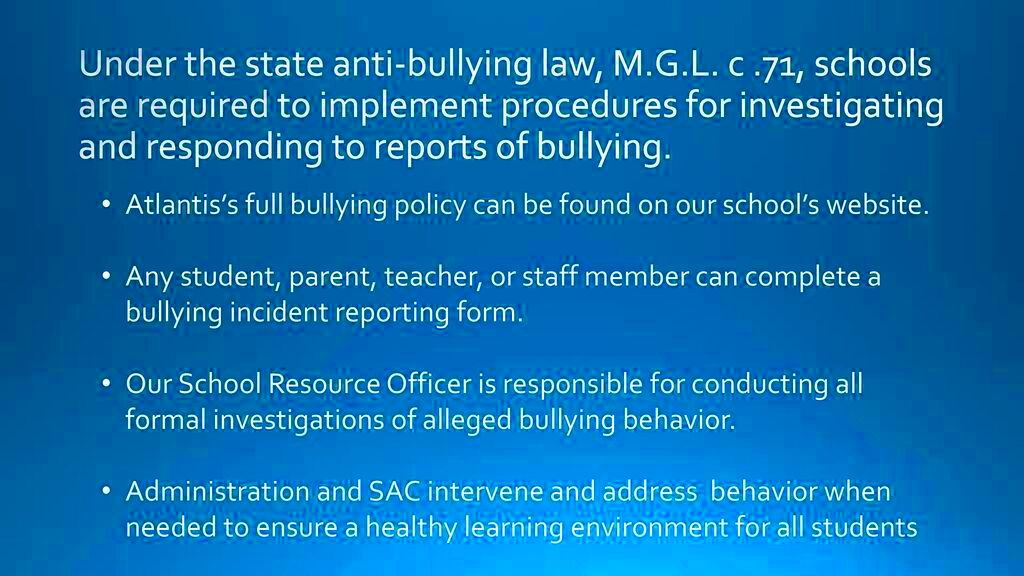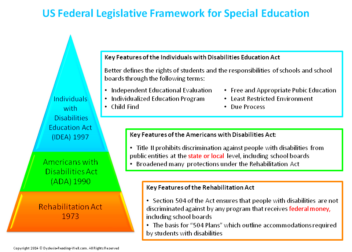Pennsylvania School Anti-Bullying Law Reform
The Pennsylvania Anti-Bullying Law is designed to protect students from being bullied in schools across the state. This legislation was established as a result of the increasing anxiety regarding bullying and its effects on pupils’ mental health and academic achievement. It is imperative to comprehend this law because it fortifies efforts towards ensuring that children are safe in school environments among parents, teachers, and other stakeholders.
Historical Context of Bullying Legislation in Pennsylvania

Over the years, Pennsylvania has made strides in implementing anti-bullying laws. In the beginning, bullying was often seen as an ordinary aspect of childhood. But as more people became aware of its effects on mental health, advocates for legislative change took up the fight. Below is a short summary of important events:
- 2002: The first anti-bullying legislation is introduced.
- 2008: Pennsylvania passes the “Safe Schools Act,” which includes provisions for anti-bullying policies.
- 2015: Revisions to the law emphasize cyberbullying and its implications.
- 2018: Further reforms are made to enhance the effectiveness of existing laws.
For quite some time, Pennsylvania has moved from reacting problem to comprehensive inclusion of prevention approaches instead. These legislative changes show an increasing acknowledgment of how severe bullying really is and the necessity of addressing these issues through the active engagement of educational institutions.
Key Provisions of the Anti-Bullying Law

The Anti-Bullying Law of Pennsylvania contains various important clauses aimed at promoting safer school settings. By grasping these provisions, those associated with education will be able to provide better support for students. Below are key aspects:
- Definition of Bullying: The law provides a clear definition of what constitutes bullying, including physical, verbal, and cyberbullying.
- Policy Requirements: Schools are mandated to develop and implement anti-bullying policies. These policies must be communicated to students, parents, and staff.
- Reporting Mechanisms: Schools must establish a process for reporting bullying incidents, ensuring that students feel safe to come forward.
- Investigative Procedures: The law requires schools to investigate all reported incidents promptly and thoroughly.
- Support for Victims: Schools must provide support for victims, including counseling and intervention services.
- Training for Staff: Educators and staff are required to undergo training on bullying prevention and intervention strategies.
The intent of these provisions is to develop a culture of respect and safety in schools across the state of Pennsylvania in order to encourage students not to be silent against bullying and create an environment where every individual feels important.
Recent Reforms and Changes to the Law

Over the past few years, Pennsylvania has experienced substantial changes in its anti-bullying legislation due to the need for an amendment to respond to new challenges arising from cyberbullying. The intentions behind these changes are to reinforce security for learners and improve the ability of current policies.
One remarkable adjustment was namely including online harassment into the definition of the verb bullying. The modification recognizes that it has peculiar problems related to it as regards to cyber-attacks through which it is possible for bullying to take place outside educational premises. Furthermore, there are updates made recently on these issues as follows:
- Expanding Definitions: The law now provides clearer definitions that encompass various forms of bullying, including harassment based on race, ethnicity, sexual orientation, and disability.
- Increased Reporting Requirements: Schools are now required to report bullying incidents more systematically, enabling better tracking and accountability.
- Enhanced Prevention Programs: The law encourages the development of comprehensive prevention programs that involve students, staff, and parents to foster a positive school climate.
- Community Collaboration: Schools are encouraged to collaborate with community organizations to promote awareness and provide resources for anti-bullying efforts.
These reforms reflect Pennsyilvania’s determination to provide a safer learning environment, whereby students learn without being subjected to fear or intimidations.
Impact of Anti-Bullying Reforms on Schools

From my novel understanding previous deadline, in the month of October 2023 the representatives of Pennsylvania have been able to apply transformative measures regarding bullying. Schools within this state embraced them so that they could help bring about key improvements in their just operations towards creating safer and supportive surroundings for students. Thus, let me point out how these new laws are actually changing things around:
- Improved Awareness: Schools are more aware of the issues surrounding bullying, leading to proactive measures rather than reactive responses.
- Enhanced Reporting Systems: Many schools have adopted better reporting systems, making it easier for students to report bullying incidents without fear of retaliation.
- Supportive School Climate: The focus on anti-bullying has fostered a culture of respect and inclusivity among students, staff, and parents.
- Increased Resources: Schools are now allocating more resources to training staff and providing counseling services for victims of bullying.
Even though these changes have a good effect, it is often the individual school that decides how much they can be effective. Schools with active parents and students in anti-bullying programs experience more changes in the general climate of the school as well as student welfare.
Challenges in Implementing Anti-Bullying Measures
Meaning even if the expectancy would be that Pennsylvania’s anti-bullying law would cause some positive changes; it has not been so in reality. Instead, many schools have their own problems implementing effective anti-bullying measures. Below are some of these common obstacles:
- Inconsistent Policy Application: Some schools may struggle to apply anti-bullying policies consistently, leading to confusion among students about acceptable behavior.
- Resource Limitations: Many schools lack the necessary resources, such as trained staff or funding, to implement comprehensive anti-bullying programs effectively.
- Resistance to Change: Some educators or staff members may be resistant to new policies or training, which can hinder progress.
- Parental Involvement: Engaging parents in anti-bullying initiatives can be challenging, as not all parents may be aware of the issues or may not feel comfortable discussing them.
- Cultural Factors: In some communities, cultural attitudes towards bullying may undermine anti-bullying efforts, making it difficult to change behaviors and perceptions.
Consistent parents, schools, and community are needed to address these challenges. The one-way of doing away with bullying and supporting learners is through teamwork.
Community Involvement in Anti-Bullying Efforts
To effectively mitigate bullying, community engagement is key. Despite significant contribution by teaching institutions, partnership among parents, local bodies and members of a society can make it more holistic. An alliance of all will sapling the anti-bullying message.
Involvement in anti-bullying efforts can be made by communities through the following:
- Awareness Campaigns: Local organizations can run campaigns to educate the community about bullying and its effects, helping to change attitudes and promote prevention.
- Workshops and Training: Offering workshops for parents and educators can help them recognize signs of bullying and teach them how to respond effectively.
- Partnerships with Schools: Collaborating with schools can lead to the development of community-based programs that support anti-bullying initiatives.
- Support Groups: Establishing support groups for victims and their families can provide a safe space for sharing experiences and finding solutions.
- Involvement in Policy Development: Encouraging community members to participate in school board meetings can help ensure that anti-bullying policies are effective and relevant.
The intention is to reduce bullying and support students who have been affected as a result of comprehensive training on empathy and kindness. It is a shared responsibility to provide a safe and inclusive space for children.
FAQ about Pennsylvania School Anti-Bullying Law Reform
Like any bill, doubts are raised on several occasions in respect of Pennsylvania’s Anti-Bullying Law amendments. Below are some common inquiries and their answers:
- What constitutes bullying under the law? Bullying includes physical, verbal, and cyberbullying, targeting students based on race, ethnicity, sexual orientation, or disability.
- Are schools required to have an anti-bullying policy? Yes, Pennsylvania law mandates that all schools develop and implement an anti-bullying policy.
- What should I do if my child is being bullied? Parents should report the incident to school officials and seek support from counselors or community resources.
- How are bullying incidents tracked? Schools are required to maintain records of reported bullying incidents to monitor trends and effectiveness of policies.
- Can parents be involved in anti-bullying programs? Absolutely! Parental involvement is encouraged, and parents can participate in workshops, meetings, and support groups.
Understanding these aspects of the law can empower parents, students, and educators to take action against bullying effectively.
Conclusion on the Importance of Ongoing Anti-Bullying Reforms
There is a necessity for current anti-bully reforms in Pennsylvania and beyond. With changing times, come increasing complexities regarding bullying especially due to the introduction of technology and changes in social relations. This commitment to perpetual improvements and adaptations of anti-bullying legislation guarantees that every learner survives in a secure and nurturing atmosphere always.
These revisions not only assist save pupils from being tormented but they additionally encourage respect and sympathy amongst learners in educational institutions. Some important reasons for continuing reform are as follows:
- Adaptation to New Challenges: As bullying methods evolve, so must the laws and policies that govern them.
- Empowerment of Students: Updated laws empower students to speak out and seek help, knowing they have the support of their schools and communities.
- Strengthened Community Ties: Involving community members fosters a united front against bullying, making it a shared responsibility.
- Promotion of Mental Health: A focus on anti-bullying helps improve the overall mental health and well-being of students.
The utmost objective is to build an arena where no child feels inferior and threatened. Repeated pressure and structure alterations may assist us in achieving this significant target, confirming that upcoming generations will be able to acquire knowledge and mature without the terror of irreverence.


